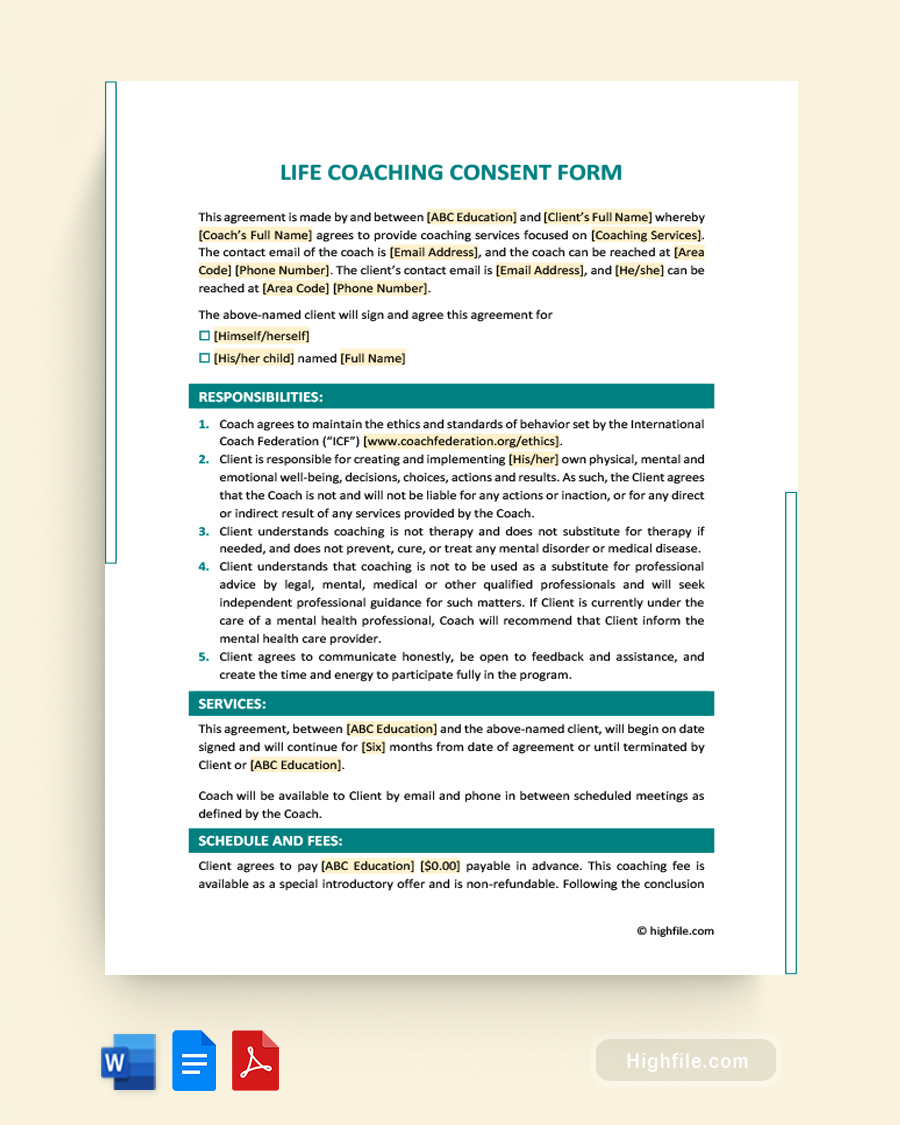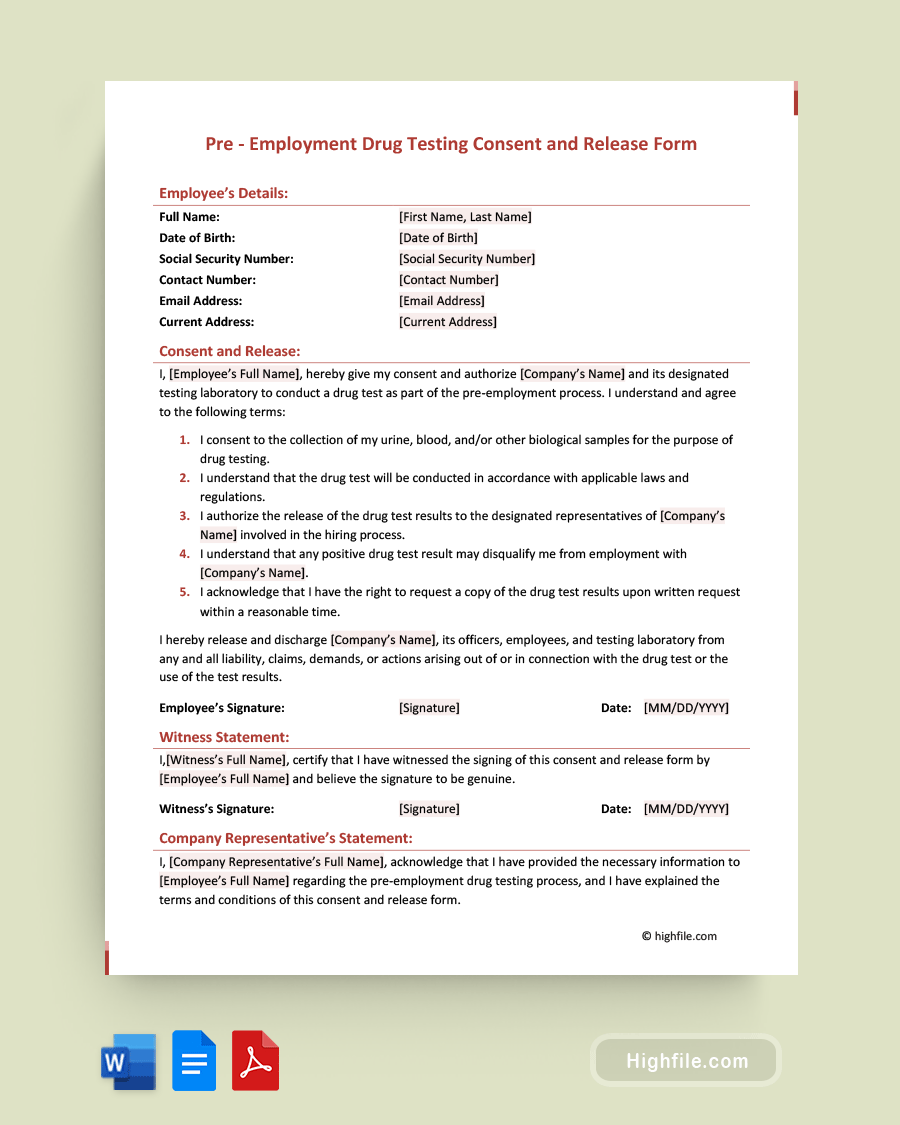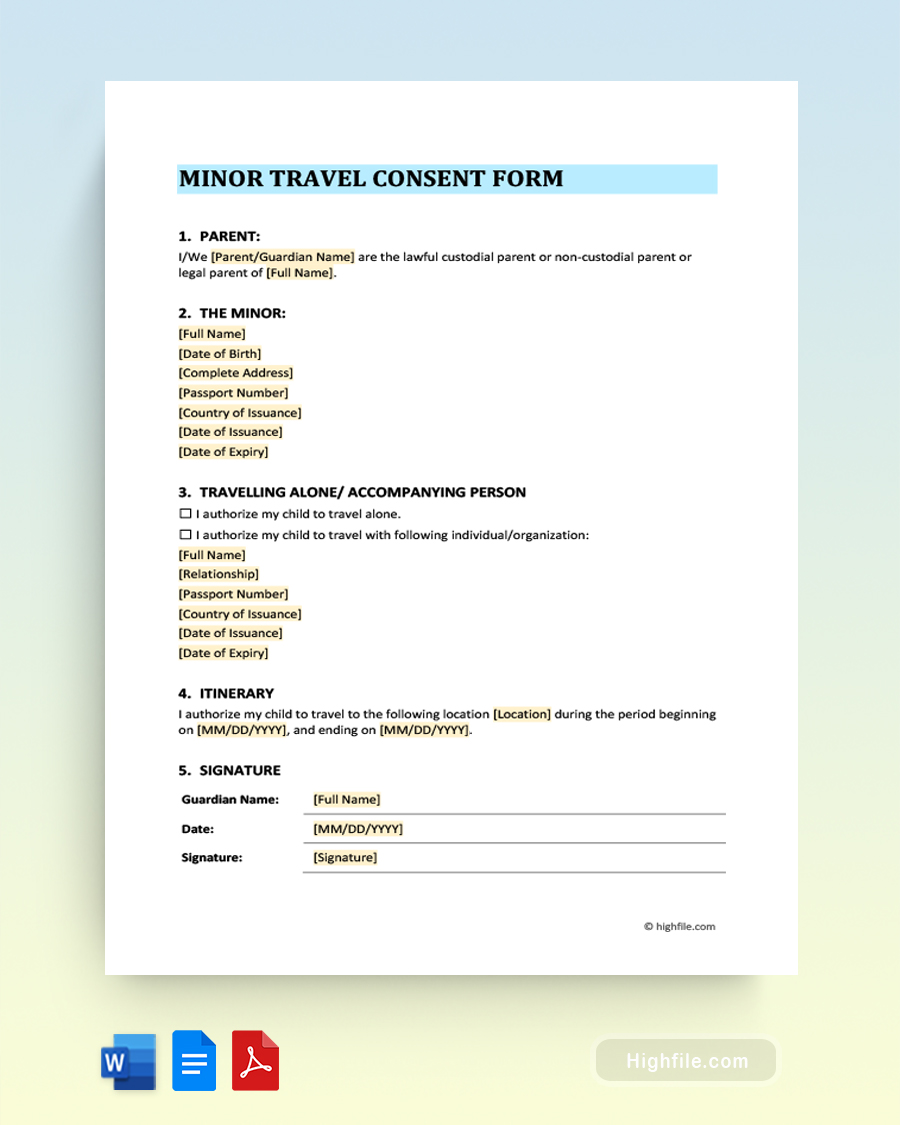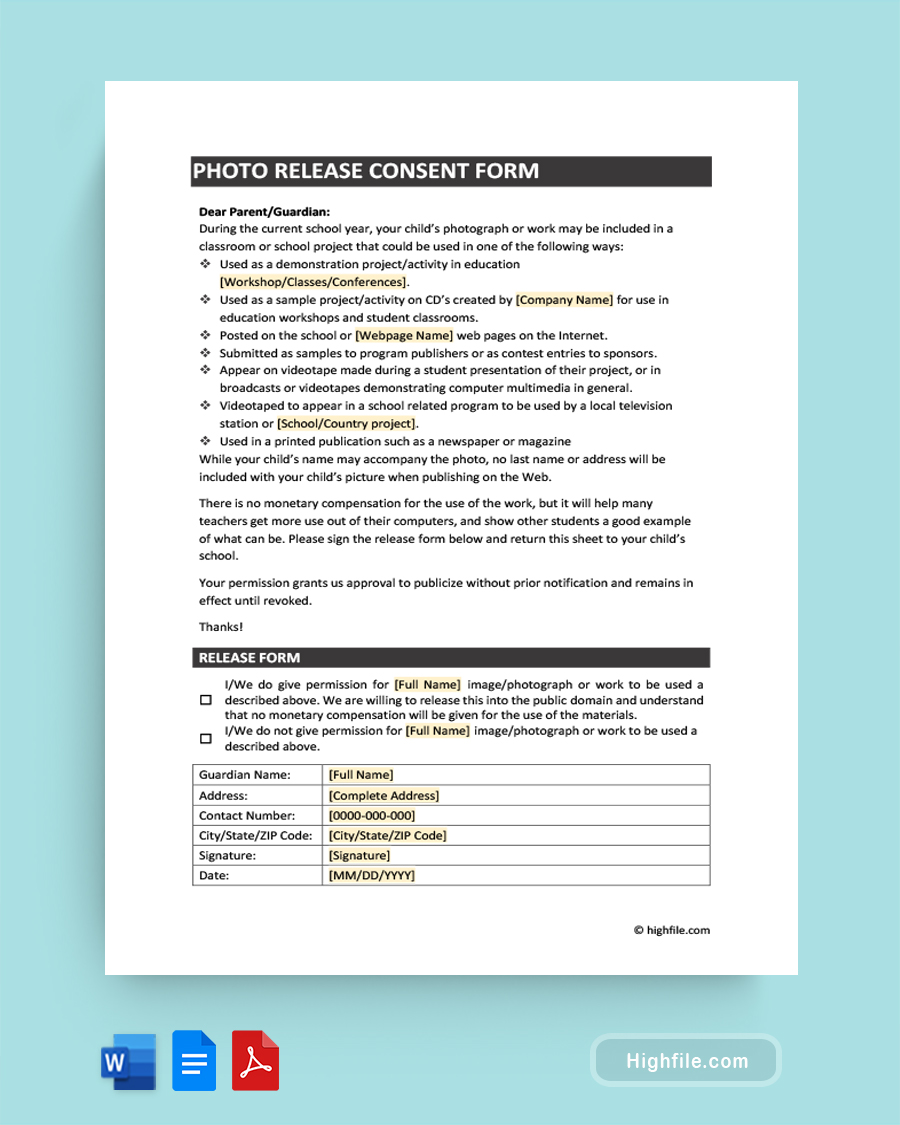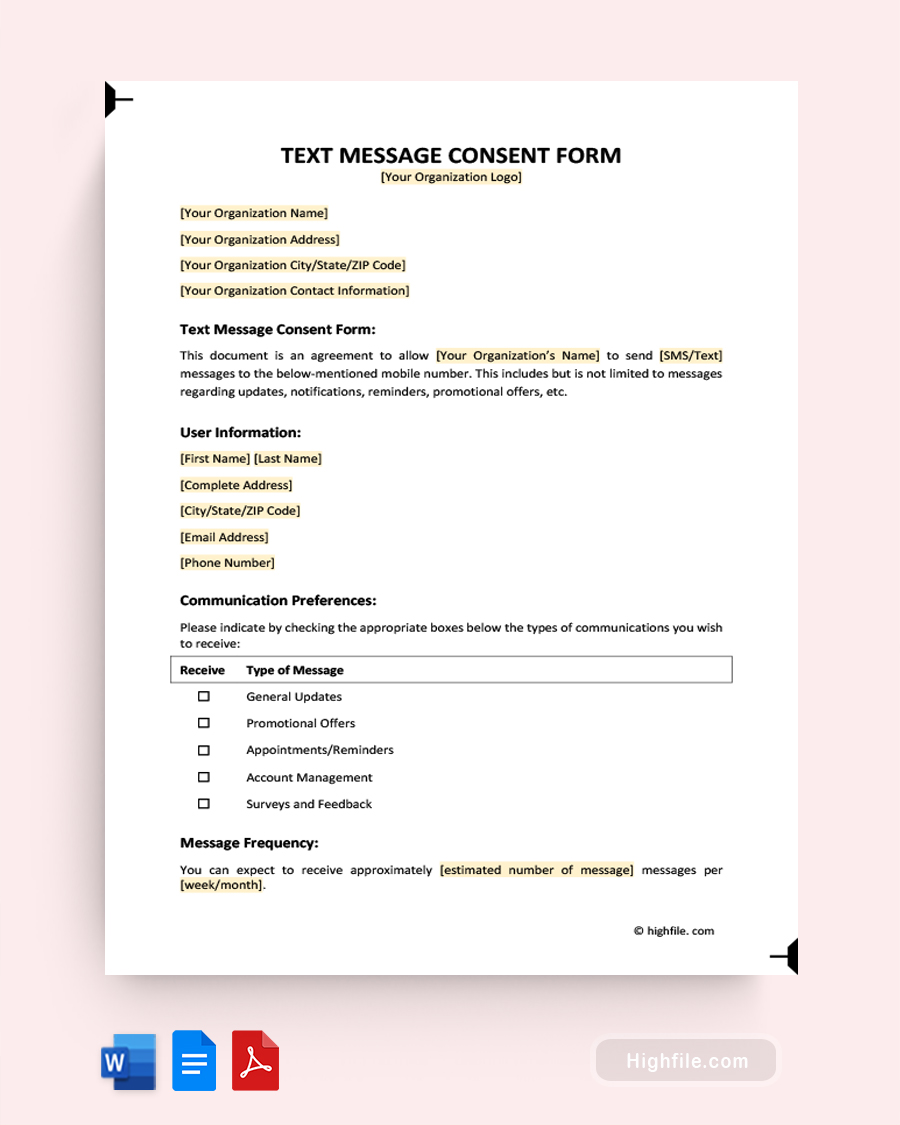As a life coach, your ultimate goal is to help your clients achieve their personal and professional goals and improve their overall quality of life. However, it’s essential to establish clear boundaries and expectations with your clients from the beginning. That’s where life coaching consent forms come in. These forms outline the coaching relationship, including the coach and client’s roles and responsibilities, confidentiality and privacy policies, and any fees or cancellation policies. By having your clients sign a consent form, you can ensure that everyone is on the same page and can focus on the important work of achieving their goals. Using our Life Coaching Consent Form Template can help you stay organized and quickly create an effective document for your business.
What Is a Life Coaching Consent Form?
A life coaching consent form is a legal document that outlines the terms and conditions of a coaching relationship between a coach and a client. It is used to obtain informed consent from the client, establish clear boundaries and expectations, and protect the coach’s and client’s rights and interests. It typically includes information about the nature of the coaching sessions, the client’s rights and responsibilities, and the coach’s qualifications and scope of practice.
Why Is Life Coaching Consent Form Important?
Life coaching consent forms are important because they establish clear boundaries and expectations for the coaching relationship. By outlining the roles and responsibilities of both the coach and the client and the terms of confidentiality, privacy, fees, and cancellation policies, the consent form helps ensure clarity and understanding about what the coaching relationship entails. In addition, the consent form helps to protect both the coach and the client by providing a written record of the agreement between them. Ultimately, the life coaching consent form serves as a foundation for a successful coaching relationship, allowing both parties to focus on the important work of achieving the client’s goals.
Essential Elements of Life Coaching Consent Form
The essential elements of a life coaching consent form are very straightforward. However, you can customize and expand upon your template to better suit your business once you’ve included the following:
- Form Title- Put the document’s name in a large, bold print at the top.
- Agreement Statement- Add a brief statement where the (named) client agrees to contract (named) service from (named) agency or life coach.
- Contact Information- Add your contact information and hours of availability.
- Responsibilities- Outline coach and client responsibilities
- Services- List the details of the service(s), including times and dates.
- Schedule and Fees- Clarify the costs and due dates for payments.
- Acknowledgment, Signature, and Date- By signing this, the client agrees to the terms and forms a contract with the life coach.
Pro Tip: An important fact about life coaching consent forms is that they help establish transparency, rapport, and trust between the coach and the client. By clearly outlining the terms of the coaching relationship, including confidentiality policies and the coach’s qualifications and experience, the client can feel more secure and confident in their decision to work with the coach. A client who knows what to expect from the coaching relationship feels more comfortable sharing personal information with the coach. As a result, the consent form can help build trust between the coach and client, which is critical to any successful coaching relationship.
Customizing the Life Coaching Consent Form
You can create a document that accurately reflects your coaching practice by customizing the life coaching consent form to include the following items.
- Your coaching philosophy and approach
- Specific techniques or tools that you use in your practice
- Your coaching availability and scheduling policies
- Fees and payment policies, including any cancellation or rescheduling fees
- Confidentiality and privacy policies, including how client information will be protected and shared, and any exceptions to confidentiality, such as mandatory reporting laws or ethical obligations
- Session structure, including the length and frequency of sessions, the format (in-person, phone, or video), and the types of activities or exercises that may be included in sessions
- Boundaries and expectations for communication between coach and client, such as email or text messaging
- Client goals and desired outcomes for the coaching relationship
- A disclaimer that coaching is not a substitute for therapy or medical treatment.
- The coach’s qualifications, credentials, and experience
FAQs
Here are important answers to the most frequently asked questions about this topic.
There may be specific legal considerations or requirements to be aware of when creating a life coaching consent form for clients residing in different jurisdictions or countries. You should consult with a legal professional familiar with the laws and regulations of the jurisdictions or countries where your clients live.
Here are some general considerations to keep in mind:
ᐅ Privacy laws: Different jurisdictions or countries may have different privacy laws that regulate the collection, use, and disclosure of personal information. Ensure that your consent form complies with the privacy laws of your clients’ jurisdictions or countries.
ᐅ Consent requirements: Different jurisdictions or countries may have different requirements for obtaining consent, such as specific language or information that must be included in the consent form. Be sure to comply with the consent requirements of your clients’ jurisdictions or countries.
ᐅ Liability and indemnification: Consider including provisions in your consent form that limit your liability and require your clients to indemnify you against any claims or damages that may arise from the coaching relationship.
ᐅ Dispute resolution: Consider including a clause in your consent form that outlines the process for resolving disputes between you and your clients, such as mediation or arbitration.
ᐅ Electronic signatures: If you plan to use electronic signatures for your consent form, ensure that the electronic signature process complies with the laws and regulations where your clients reside.
You can use several tools and techniques to efficiently manage and track the signing of life coaching consent forms for multiple clients, even if you are conducting remote coaching sessions. Here are some suggestions:
ᐅ Client management software: Consider using client management software, such as Practice Better or Acuity Scheduling, to manage your coaching sessions and track the completion of your consent forms. These tools can integrate with electronic signature platforms and online documents, allowing you to manage everything in one place.
ᐅ Electronic signatures: Consider using an electronic signature platform, such as DocuSign or Adobe Sign, to streamline the process of obtaining signatures on your consent forms. Electronic signatures are legally binding in many jurisdictions and can be signed remotely, making it easier to manage and track the signing of multiple documents.
ᐅ Reminders and follow-ups: Send reminders to your clients to complete and sign the consent forms, especially if they are overdue. Consider automating these reminders using email marketing software or client management software.
ᐅ File organization: Create a system for organizing and storing your signed consent forms, whether in a physical file cabinet or a cloud-based storage solution like Google Drive or Dropbox. Ensure you have a backup system to prevent the loss of essential documents.
There are specific clauses and considerations that should be included in a life coaching consent form when working with clients under the age of 18 or vulnerable populations. Here are some suggestions:
ᐅ Parental or guardian consent: If your client is under 18, you should include a clause in your consent form requiring the parent or legal guardian to consent to the coaching sessions.
ᐅ Confidentiality: Include a clause explaining confidentiality limits when working with minors or vulnerable populations in your consent form. Explain that you may need to break confidentiality if you have reason to believe that the client is at risk of harm or if there are legal requirements to report certain types of information.
ᐅ Emergency contact information: Collect emergency contact information for clients under 18 or vulnerable populations in case of an emergency during the coaching sessions.
ᐅ Scope of practice: Include a clause in your consent form that outlines the scope of your practice and the limitations of your training and expertise. For example, you should make certain the parents understand that life coaching is different from counseling or therapy, and you cannot provide services for which you are not licensed.
ᐅ Informed consent: Ensure that your consent form includes language that ensures the client understands the nature of the coaching sessions, the potential risks and benefits, and their rights as a client. This language should be written in clear, accessible language appropriate for the client’s age and level of understanding.
Key Points
The purpose of life coaching consent form templates provide coaches with a pre-designed framework for creating a consent form that covers important legal and ethical considerations. The templates can ensure that coaches have a comprehensive document that accurately reflects their coaching practice and meets the specific needs of their clients. By using a template, coaches can save time and effort in creating a consent form and focus on building a solid coaching relationship with their clients.
